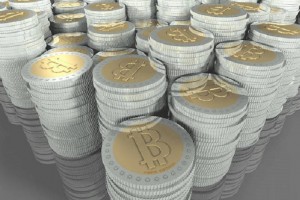Latest Posts
-
Finance 0
GBP/JPY Still Can Rise Again
The British pound kept its solid position against the greenback and yen seen earlier in the morning, amid the risk-on mood on global financial markets during Monday’s data-light session. Japanese sovereign borrowing costs kicked off the new week little changed after the nation’s central bank skipped its bond buying operation under its ultramassive QQE program, while traders focused on a 30-year bond auction later in the week. Yields on benchmark 10-year Japanese bonds were little changed at minus 0.081% during the morning European session, hovering above their previous all-time low of minus 0.135% snatched on March 18, when the mi...On April 12, 2016 / By Kurt Osterberg -
Finance 0
Average German Bond Yield Crashes To Zero For First Time Ever
“You Get Nothing” is the message for German bond coupon-clippers as for the first time in history, the average yield across the entire bond complex tumbles to zero. h/t @Schuldensuehner With the yield curve below zero to 9 years, and 1 month yields at -65bps, it is no surprise that asset managers are extending duration…...On April 12, 2016 / By Kurt Osterberg -
Finance 0
EU Bullet Report – Could This Be The Beginning Of An Oil And Gold Trend?
?Several FED members are expected to speak this week, while UK inflation figures for March are due later today. Stocks: US stocks ended slightly lower yesterday as sentiment turned negative half an hour before the closing bell. DJIA (DIA) and S&P 500 (SPY) indices lost -0.12% and -0.27% respectively. The US earnings season was officially kicked off with aluminum producer Alcoa (AA) reporting earnings after market close. Australia and Asian stocks were higher after the close on Tuesday, led by Japanese Nikkei. Oil and Gold: Both oil and gold enjoyed a significant day of gains yesterday which today though, shows signs of correction. W...On April 12, 2016 / By Kurt Osterberg -
Finance 0
Forget Goldman Sachs, Buy These Financial Stocks Instead
On Monday, the U.S. Department of Justice (DoJ) announced that Goldman Sachs (GS – Analyst Report) has agreed to pay $5.1 billion for its role in the financial crisis of 2008. The company sold mortgage-backed securities (MBS) as high quality debt investments without informing investors of how risky those securities actually were. Year-to-date, Goldman Sachs’ stock has lost 15.55% of its value. In my opinion, shares of the company could stand to lose some more weight than they already have. The company’s earnings and revenues are expected to decrease by 20.73% and 8.28%, respectively. The global bank is also sensitive to global vol...On April 12, 2016 / By Kurt Osterberg -
Finance 0
Daily Market Analysis Video – April 12, 2016
There are a couple of announcements that could affect the markets today, with the CPI and PPI numbers coming out of the United Kingdom, and the Trade Balance numbers coming out of China. While the British numbers will more than likely be somewhat localized to the FTSE and the British pound, the Chinese numbers of course could have far-reaching effects if they miss drastically. After all, China tends to be the manufacturer of most things global, and if those numbers are heavily skewed towards importing, it means that the rest of the world is buying less Chinese goods. 1 – With the Chinese number coming out, a poor showing would of course fav...On April 12, 2016 / By Kurt Osterberg -
Finance 0
Altius Minerals Takes Advantage Of Market Weakness
Altius Minerals Corp. (ATUSF) has continued to make progress through the bear market in resources. Most recently, it has entered into a metal purchase agreement with Yamana Gold (AUY) to purchase some of the future copper production from its Chapada mine. Altius Minerals will pay US$60 million plus 30% of the spot copper price upon delivery. It will also give Yamana 400,000 warrants exercisable at CA$14 per share. It will receive just under 4% of the copper production from Chapada (with some reductions after 75 million pounds has been delivered and if the mine expands production). The deal is expected to increase Altius’ earnings by ar...On April 12, 2016 / By Kurt Osterberg -
Finance 0
The Root Of Rising Inequality: Our “Lawnmower” Economy (Hint: We’re The Lawn)
After decades of denial, the mainstream has finally conceded that rising income and wealth inequality is a problem–not just economically, but politically, for as we all know wealth buys political influence/favors, and as we’ll see below, the federal government enables and enforces most of the skims and scams that have made the rich richer and everyone else poorer. Here’s the problem in graphic form: from 1947 to 1979, the family income of the top 1% actually expanded less that the bottom 99%. Since 1980, the income of the 1% rose 224% while the bottom 80% barely gained any income at all. Globalization, i.e. offshoring of j...On April 12, 2016 / By Kurt Osterberg -
Finance 0
Crude Oil Prices: Why A Sustained Rebound May Still Be Further Ahead
Global crude oil prices have recovered somewhat ? even if tenuously ? from the lows of just a few weeks ago, but they are still only about 30% of their values for the same period two years ago. While it is unclear just how long it will last, the low oil price regime has failed to bring any significant growth to the global economy and has left many producing companies struggling with dwindling revenues, even bankruptcy. In addition, the often-observed correlation between oil prices and share prices only adds to current market uncertainties. The current low oil price regime is driven in the main, by a lingering oil imbalance ? excess of supply...On April 11, 2016 / By Kurt Osterberg -
Finance 0
China Will Lead Us Down
Here’s the FXI… Whose vulnerability I think is pretty evident from the chart. If it starts to weaken, I suspect the oh-so-perilous S&P 500 will tag right along:...On April 11, 2016 / By Kurt Osterberg
Top Posts
-
 The Importance for Individuals to Use Sustainable Chemicals
The Importance for Individuals to Use Sustainable Chemicals
-
 Small Businesses: Finding the Right Candidate for the Job
Small Businesses: Finding the Right Candidate for the Job
-
 How to Write the Perfect Thank You Letter After Your Job Interview
How to Write the Perfect Thank You Letter After Your Job Interview
-
 3 Best Large-Cap Blend Mutual Funds For Enticing Returns
3 Best Large-Cap Blend Mutual Funds For Enticing Returns
-
 China suspected in massive breach of federal personnel data
China suspected in massive breach of federal personnel data













